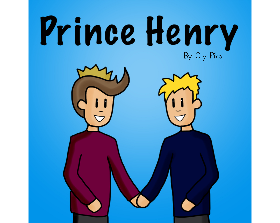www.equalitiesprimary.com lesson
plan by Andrew Moffat
|
Text: Prince Henry – Olly Pike
|
Year Group: Year 2, 3, 4
|
Learning Intention: To speak up when
I think something is wrong
|
Success Criteria: I know why we
have rules / I know I can speak up if I think something is unfair/ I can
discuss rules with my friends
|
Starter: Put “the law” on the board. In
talk partners discuss :
1.
What laws or
rules do we have in our school
2.
Why are laws
important?
3.
Can laws be changed?
|
Main: Read “Prince Henry” or watch it on the
PopnOlly website: http://popnolly.com/episodes/4559460378 stop after Thomas
says no to Prince Henry so the last line is “Who knows, maybe in one year or
five or ten I will ask you to marry me”
Discuss: In talk partners children discuss,
what was the story about?
Who
does Prince Henry want to marry?
Why
doesn’t the king want Prince Henry to marry Thomas? Is that fair?
How
does Prince Henry change his father’s mind?
Why
doesn’t Thomas say yes to Prince Henry?
What
do you think of this ending?
|
Role play: In the story the king changes his
mind about the law in his land, and he then makes things fair by ripping up
the old laws and writing new ones. Show the children a pile of papers and say
these are some laws for our school but they have got mixed up. Some of the ideas
don’t belong in our school, and some of the ideas do belong. Can the children
help you to sort the laws out? Keep the laws we agree with in our school and
rip up the laws we don’t agree with.
Put
the laws face down in a pile in the middle of a circle. Children come to the
centre of the circle one at a time, pick up the top one and read it out. For
each law the class decide, do we agree or should it be ripped up? After
discussing each, ask the children, “What shall we do with it?” and have the
children shout either, “Keep it” or “Rip it up!”
Use
the following laws: (simple answers in brackets)
In our school there must be only one
religion
(no, we welcome all religions)
In our school everyone must have the same
eye colour
(no, all eye colours welcome)
In our school you can be Black, White or Asian (yes, everyone welcome)
In our school all families must be the same (no, different families welcome - mum and
dad, two mums, one mum, one dad, two dads, grandparents, foster families etc)
In
our school girls can only be friends with other girls (no we are friends with everyone)
In our school football is only for boys (no, football is for everyone)
In our school we must all look the same (no, we are all different)
People who are different do not belong in
our school
(no, we like everyone and we are all
different in some way)
People who speak a different language are
welcome in our school (yes, it’s great
to be friends with different people)
Prince Henry and Thomas are welcome in our
school (yes, everyone is welcome in our school.
Ask the children what’s different about Prince Henry and Thomas and ensure
children use the word gay. Reinforce that gay people, along with any people
are welcome at our school)
People born in another country are not
welcome in our school (yes they are.
Everyone is welcome)
In our school there are no outsiders (correct, no one is left out or excluded)
|
Activity: Choose and record three rules for
our school that you think are important, or re-write the rules we ripped up
so that they fit in our school.
|
Plenary: Do you think Prince Henry and
Thomas ever did get married? Why didn’t Thomas want to get married? When
might he be ready?
Read
or watch the rest of the story. What does “Their love was always equal” mean?
A few
years ago people who were gay were not allowed to get married in the UK but
now the law has changed. Why did the law change? Why is it important to allow
everyone to get married if they want to?
|
AFL questions: Children complete
the following sentences:
Sometimes
laws need to be changed because….
I am
proud of the laws in our school because we say…
|
For 35 lesson plans based on picture books see, “No Outsiders in ourschool: teaching the equality act in primary schools” by Andrew Moffat.

No comments:
Post a Comment